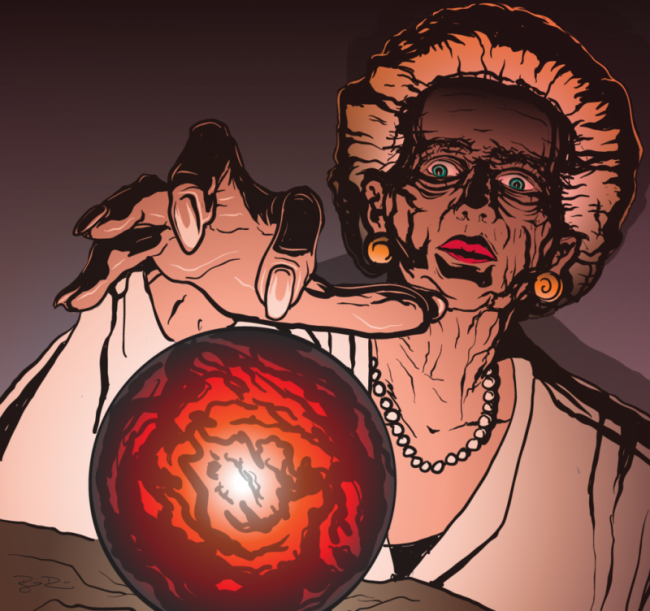Art by Seattle DSA organizer Brian Reindel
By Seattle DSA organizer John Speranza
In a 1987 interview, Margaret Thatcher, the prime minister of the United Kingdom, famously said, “there is no such thing as society.” It was a remark that was taken by many on the left to summarize in just a few, concise words what they perceived as the heartlessness of Britain’s Conservative government, and of the market-first worldview which found its champions in leaders like Thatcher and President Ronald Reagan.
Of course it’s true that society isn’t a thing, not in the way that a person, or a mountain, or a planet is a thing. But Thatcher was trained as a chemist, and she had to know that what she said, even if it might have been good rhetoric, was bad science. Because science — not just social science but physical science too — is the art of treating abstractions as though they were things.
On Thatcher’s logic, there’s no such thing as a solid, or a liquid, or a gas, or a temperature either — there are only individual molecules and atoms, arranged in certain ways, moving in certain patterns. But she didn’t let her skepticism about abstractions stop her from wearing an overcoat when it was cold outside, or carrying an umbrella when it was raining.
Conservatives love to deny the existence of abstractions. It’s a habit that suits their reputation for plain speaking and plain thinking. But they’re not above invoking the existence of industry, or the economy, or freedom, when they sense that it might help their argument — a raise in the minimum wage, as they like to remind us, would hurt the economy by increasing unemployment, and an increase in the marginal tax rate would constrain the freedom of the ultra-rich to keep as much of their income as possible.
So on a conceptual level, she was wrong, and I doubt she could have really believed what she was saying. But I wonder more and more, as the years go by, if what she said might not have been right. Not right in saying that society can’t exist, that it’s an incoherent concept — but that society in fact doesn’t exist.
Ultimately I consider myself a socialist for reasons that are perhaps a little bit simplistic. I don’t care much, as an end in itself, who exactly owns the means of production, or whether agriculture should be collectivized, or whether the concept of exploitation is logically dependent on the truth of the labor theory of value.
I’m a socialist because I believe that a society ought to be organized in a way that benefits its members — that all the little transactions that collectively make up that abstraction called “the economy” ought to produce benefits for all of us, not just the lucky few. I believe that if we are going to live together we are going to have to demonstrate some concern and care for one another, not engage in an economic war of all against all, making excuses for our selfishness and dressing them up in the language of freedom.
It’s a strange kind of freedom, this freedom to go bankrupt because you couldn’t afford to pay for the medical treatment that saved your life. Or the freedom to lose your home because the only job you know how to do is now done cheaper elsewhere. I believe that a society worthy of the name would view these things as injustices that should be fixed at any cost. Instead, we view them as the regrettable price of a few rich people’s freedom from taxation, from responsibility, from the duty to repay some small share of what all of us, individuals though we may be, have collectively given them — via not just our labor but from the security that comes from living in a peaceful society.
But a society depends on a certain amount of fellow-feeling among its citizens. And that fellow-feeling is hard to come by when citizens can’t regard one another as equals. Under the present iteration of capitalism, I can’t see how those at the top and those at the bottom can feel like they live on the same planet, let alone in the same society.
Can a billionaire say, with a straight face, to a man who lives in a tent under an overpass, that he, and a thousand others like him, have to have nothing, so that they can have a billion dollars? Can a CEO explain, to the satisfaction of the workers in a call center or a factory, that they have to work for a lifetime without relief so that he can live like a pharaoh?
I’m a socialist because I believe in society as something we need to strive for — and something we’re a long way from achieving. Because until we can all justify our choices and our actions to one another, and explain that we do what we do out of a recognition of the fact that we’re all in this together, then I don’t see how we can honestly say that what we have is a society at all.
Unless expressly stated, Dispatches do not necessarily reflect the views of Seattle DSA as an organization or its leadership.
